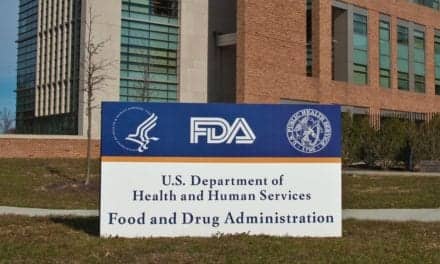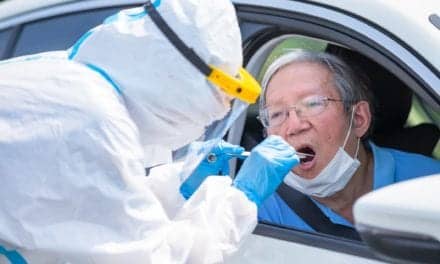In a wide-ranging Q&A, Prophase Labs’ Ted Karkus and Spectrum Solutions’ Bill Phillips discuss how saliva testing will help society open up, why this testing will become the norm, and the essential role labs and laboratorians will play going forward.
By Chris Wolski
With the COVID vaccines and talk of herd immunity front and center, testing, which was a cornerstone of managing the pandemic in its early phases, seems to be less of a priority. However, as laboratorians know, testing will continue far into COVID’s endemic phase.
In a wide-ranging interview with CLP, Ted Karkus, CEO of Prophase Labs, and Bill Phillips, COO of Spectrum Solutions, discuss the companies’ partnership, why saliva-based testing may be a key factor in helping society to reopen, and the essential role laboratorians will play in the coming months and years.
Answers to CLP’s questions were edited for length and clarity.
CLP: Can you give an overview of the ProPhase and Spectrum Solutions partnership?
Bill Phillips: ProPhase Labs has integrated the SDNA-1000 Saliva Collection System from Spectrum Solutions into their processing so they can perform saliva-based testing for simultaneous multi-viral detection of infections and viral mutations. This includes advanced multiplex qPCR platform for the simultaneous RNA detection of not only SARS-CoV-2 (COVID-19) but also COVID-19 viral mutations, influenza A and B, and opens the door for many other tests as well. Spectrum Solutions and ProPhase Labs are working on several projects that have the ability to make a huge impact.
Ted Karkus: Spectrum Solutions was the first to gain Emergency Use Authorization (EUA) for saliva-based testing and we are proud to be their preferred lab for providing results. ProPhase Labs and Spectrum Solutions are working together to provide patients with precise test results — 99% accurate — using a single saliva test to quickly detect and identify COVID-19 and any of its 17+ current viral mutations.
Phillips: We are also working on an assertive R&D program for multiplex testing to push the boundaries and validate solutions to see how many conditions can be tested at once using saliva.
CLP: Going forward, why is saliva testing critical to reopening the country and keeping it open?
Karkus: Saliva-based testing is easier to administer and can also be self-administered, removing the need for a certified health professional to be present. Throughout the past year we have seen many dips in testing due to fatigue and fear among many other reasons. Saliva-based testing is completely painless and therefore provides a more attractive option for many people who may be tired of or fear a nasal swab test.
Phillips: The use of our saliva-based collection device — with its unique preservation solution — has been hailed as a resounding world-wide success for COVID-19 testing. There are three main reasons for this. First, saliva collection is completely painless, which makes it a more viable option for more people; second, with our unique preservation solution, the sample is stabilized and can be shipped to a lab, even in extreme weather conditions; and third, the solution neutralizes the live virus (protecting lab workers from exposure) while preserving the fragile RNA, which is required for PCR testing. Another issue that came out of the COVID-19 pandemic is the validation that ongoing PCR testing is critical. Saliva-based PCR is more stable, more effective and more definitive than those leveraging nasopharyngeal swabs for other tests, particularly rapid antigen test, whether the patient is symptomatic or not.
CLP: What role will medical testing labs play as COVID moves from a pandemic to endemic phase?
Phillips: During the height of the pandemic, many labs around the world increased capacity to match demand. Going forward, large, high-throughput labs will not be doing as much testing and will likely see a pivot back to large population testing and research. Smaller labs will go back to doing contract work with hospitals.
Karkus: COVID-19 tests will be around long after our lifetime. Similar to how an Influenza test or strep throat test is still commonly used, so will COVID-19 tests.
CLP: Will labs necessarily become the epicenter in efforts to control new outbreaks or identify new strains of the disease?
Phillips: Absolutely. That is where the science and research will shine. I foresee more sponsored research in areas such as specific racial populations as well as more tests for antibodies and so on.
CLP: As we head toward so-called “herd immunity” with large numbers of vaccinated or having recovered from COVID, why do you see testing as still being necessary in the coming months?
Karkus: Vaccines and immunity also play a key role in continuing to normalcy. However, you can be vaccinated and still contract the virus. We have also already seen new strains of COVID-19 since the initial outbreak and viruses are continuously evolving – meaning there is always going to be a need for testing and new technology. The world witnessed how fast a singular case quickly spread and was declared a global pandemic. A new strain can have the same consequences, which is why it is so important to continue testing so that we can monitor and control any outbreaks.
Phillips: Testing will continue to be extremely valuable and an on-going activity. In fact, it will become the norm. the volume of testing will be lower than during the height of the pandemic, but testing will absolutely need to continue. There will be COVID-19 flareups in, for example, smaller communities where it was not as prevalent before. And with a significant percentage of the U.S. population not getting vaccinated, the main strain will continue to spread, albeit at a lower rate. The virus is also evolving and new variants such as B.1.1.7, B.1.351, P.1, B.1.427 and B.1.429, and numerous others have been identified. Ongoing testing and tracking for those variants will be vital to combatting the virus.
CLP: For ProPhase Labs, the website notes a 24-hour turnaround time. How do you balance speed and accuracy?
Karkus: Quick turnaround times are key to reopening and maintaining a normal society. For those who want to travel or attend events, they need a test done in relevant timing to the event, but also with enough time to receive results. Our labs are highly efficient and staffed by professionals – key to keeping our tests quick and accurate. Specifically with saliva-based tests, there is also less room for error given that the human element is further removed.
CLP: Spectrum Solution’s saliva kit is FDA authorized, which is an important milestone, but one thing that I think is critical is its scalability. That’s something you highlight on the site — is that another critical element to combat COVID, particularly in the case of any new outbreaks?
Phillips: Advancing technology and cooperation among companies such as Spectrum Solutions and ProPhase Labs makes scalability possible — and as we have seen with this pandemic, scalability is a requirement when immediate action is required on a global level. Aside from meeting global demand, as Spectrum Solutions and its partners move from research and FDA Emergency Use Authorization to FDA approval for more diagnostics, scalability will once again be important with saliva-based testing for general health and wellness, various cancers, numerous viral infections, auto immune conditions, and other diseases.
CLP: Going forward, what do you see as the trend in COVID testing a year or more out from our return to pre-COVID normalcy?
Phillips: Currently people are definitely suffering from COVID-fatigue and burnout. With an oversaturation of information, many people are starting to ignore recommendations such as getting vaccinated, wearing masks, and social distancing. Looking out a year, while the volume of testing will decrease, the act of getting saliva-based tests will become the norm. When people get a cold or during a flu outbreak, people will want to know if it is a COVID strain or something else. With expanded multiplex tests, they will be able to know exactly what virus they have been infected with. This will enable physicians to execute more specific and personalized treatment strategies and empower patients with the knowledge of how they should proceed and behave. For instance, they will know if they need to wear a mask and self-isolate and for how long.
Chris Wolski is chief editor of CLP.




